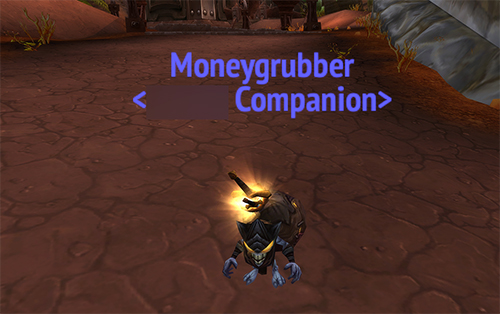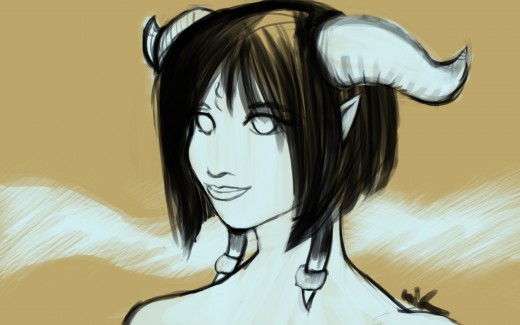
There seems to be a lot of talk recently in the community about money. Specifically, who needs it, who doesn’t have it and who really “deserves it.” I quipped earlier last week that I held a pretty unpopular opinion about how content creators should rightfully get paid for their efforts. With the recent news about Wow Insider laying off a lot of their staff or Gamebreaker soliciting the community to help keep the site afloat, I don’t think there’s a better time to have this conversation.
Now, I am not specifically a business major, so take some of my opinions with a grain of salt on the money front. However, I am a content creator and so a lot of my feelings on payment and funding come from wanting to see people be able to provide content and be somewhat solvent. Now, I understand that not everyone cares about making money at all, much less on multiple projects. Some people have a full-time job that allows them to operate content as a hobby. Some people don’t mind providing information for free. These are all personal choices and I commend that. I operate this own blog at a loss and while some days I wish I could make money writing about World of Warcraft, I am just not at a place to turn this particular venture into revenue.
However, regardless of all that, it is my firm belief that people should be compensated for their time and efforts. It’s becoming more apparent to the culture at large that the Internet is not one large volunteer staff that gives them free stuff. It’s a dedicated labor force that (sometimes) controls the means to production and should be able to see the benefits of. We need to change the popular opinion on content and help people out.
Time is Money, Friend
One of the most misunderstood and important reasons why content creators need some sort of income (unless they are comfortable otherwise) is because people forget that time is a resource. The goblins have the right of it! When people approach any project or see someone asking for money, they do forget that time is a cost. The reason for that is we don’t think of it as something like that is because it’s always there even when we do things we like. Think of the last time you had someone come to your house to fix something - technicians frequently charge for time, labor and materials. The reason for this is because you spend time doing things. (This is helpful language for reminding you!) Any time you spend doing stuff for free is time you didn’t spend doing stuff for money. (A concept adjacent to this is called opportunity cost and is the reason why people who say that they “make pure profit” off herbs they farmed themselves are wrong.)
It’s confusing to me, sometimes, as an artist who does commissions, why people forget time. Artists tend to negotiate pricing by how much effort is required, factored in by an hourly rate. Most of my pieces should be priced by how long it takes me and what my current hourly rate is but often times I skimp on that and pay myself much lower, almost to the point of being under the minimum wage in our country because that’s just how it goes. It is a sad fact.
Don’t Forget About Labor and Expertise
This is one of the reasons that Tzufit and myself decided to start a Patreon account for our podcast. There is just tons of work and expertise that often go into blogs, podcasts, videocasts and just about anything else you could think of. Whether it’s writing words, figuring out equations for theory-crafting, recording a video or even just learning over time to be a better artist, that’s all work. Same goes for research, editing, and gathering supplies. There’s a real effort put into some of the things we use on a regular basis and you should acknowledge that. I think so many people are wrapped up in getting exposure for their talents (not to mention that many unscrupulous people have profited off of this idea) that they forget that not everyone can do the things they do, or much less want to. This phenomenon goes up in value when you involve talents or skills many people do not possess. (See: theorycrafting, addons, class guides) But all in all, even “unskilled” (this is a misnomer) labor is still deserving and valuable because you are putting in the work for something.
Materials Are Also A Thing
Quite a few efforts, even for fan content, tend to operate at a loss just due to materials. This is because website hosting, editing programs, video games and art supplies are all things that cost money and are required for much of the content people want to produce. Time and labor are the most forgotten parts of overhead (also known as operating costs) but materials also part of that. There’s many different items that go into creating stuff that people pay out of pocket. This is means that you have to be comfortable paying for that with some other source of income or else maybe not continue running a blog or videocast. In that way, it is interesting to see so many people as content creators who are also low-income do it with very little revenue. (I am one of those people and I’m not overly fond of it because I would like to pay for things on a regular basis.)
Changing the Paradigm
I wanted to address some of these underlying issues with content creation and revenue/income because I feel that the culture of the Internet has made it all too easy for people to make things for free or for their love of something (which is totally, fine, by the way!) and have people profit off that or otherwise expect everything without recognizing the costs involved. There’s far too many outfits online that make money without involving creators or participators in an equal way and without paying them. There’s a lot of people online, even other creators, who believe that you should treat all your efforts as a hobby and that everything should be handed out with no recompense. It is this presumption that makes creators who do want to ask for money or generate income look like treasure goblins to the vast majority - running off with your money and such. The undercurrent to this is basically saying, “Whatever time, effort or skill you put into this doesn’t matter, and the content you made doesn’t have a monetary value.” Which, frankly, is really upsetting. Audiences getting a value out of something you create means it does have value. Valuing the things you create and other people create, only helps everyone out in the end. It means that the quality of the content goes up, the time the person spends on said content becomes more meaningful and overall, the fact that some people can start to live on their creations has a net benefit of raising the tide so that more people can do so as well.
Another way of changing up how we view monetizing is breaking down who “deserves” to make money off their work. I believe everyone deserves to make money for their work, barring something like being deceptive or outright stealing it from other people. If you don’t want to support someone’s work, then don’t use it. If you don’t like how they how they make their income, then don’t support them. Snubbing someone because they wish to make a living off their time and effort is a pretty mean thing to do. If people want to give money to someone, that’s their choice to do so. But know this - everyone deserves the fruits of their labor. It’s not greedy. It’s fair. It’s work. It should be treated as such.
I do want to reiterate one thing though: if you are comfortable to be able to operate personally at a loss and believe your content should be available to everyone for free? That’s totally cool and awesome! That’s how a lot of open source materials tend to work and there’s definitely a space and mindset for that. However, that doesn’t work for everyone, nor should it. Also, once you start involving other people, I believe the process becomes a lot more murky. If you start to draw revenue for a collaborative effort, I believe all collaborators should be beneficiaries of not just the money but also the direction of the project. This means that if you want to run a fansite with a lot of content, you should be setting up this with a business plan in mind in order to properly mitigate costs as well as pay people for helping your brand and site grow, not just paying them in exposure that looks good on a resume. If you can’t do something solely as your own entity, then you need to compensate people for helping you out.
Create Content, Acquire Currency
But how do people actually make money now?
It’s still a pretty new system, especially online. In the olden days, there used to only be a couple of ways of getting something for something else. You either bartered for equal goods, paid for something or relied on charity or patronage. The new methods online are fairly similar but they tend to take more forms given how technology has developed. However, due to a lot of these methods looking (if not working) slightly different from the old format of making money (“Going to a 9-to-5 job”), I feel that a lot of people scoff at them and combined with our feelings of devaluing content, they are seen as greedy or arrogant.
So let’s break down some of the ways that people have, in recent years, managed to eek out some form of payment for the work and content they provide.
Ads
This is easily the backbone of how websites are “supposed” to make money. The truth of the matter is very few sites actually reap enough revenue from eyeballs or click-throughs to make this work. Ads are the first things to get blocked on any page, even typically non-harmful sites, just due to how annoying they are perceived. The only time ad revenue really works is if you are a large company that can run your own sales department that gets high bids from other companies for specific ads on your network. So in short, if you’re a little guy using Google Adsense or Adbrite, it’s not going to be a sizable portion of your income unless you have a decent amount of traffic.
Merchandise
This has grown over the years as more and more places have sprung up to create products on-demand using other people’s designs, meaning the overhead for getting merchandise and a store attached to your content has dropped. Still, it is a cost that you can incur as a content creator so it might not be feasible for someone who is already low-income, but it is an option. Places like Storenvy and Etsy have also made it possible to operate as a storefront just as one person. There’s also places like Redbubble that allow you to sell your designs with a huge cut of the money coming out to cover production but with no start-up costs required. Gone are the days of solely relying on Cafepress, basically. People tend to like merchandise because it gives them “something” for their money and also shows off that they are a fan of your work.
Donations
This ranges from having a Paypal donation button on your website to donation drives (think NPR or Public Television) in order to support your efforts. Even Twitch streamers sometimes have tickers on their videos showing people donating sums of money. It is a subtle (sometimes) way for a person to allow the audience to chip in a little money towards their efforts (or perhaps purchasing stuff for them off an Amazon wishlist) in order to show gratitude. It’s never a secure method of paying for your work but it often works a bit better depending on how faithful your audience is. People like feeling philanthropic and also giving back to something they’ve gotten entertainment from or used on a regular basis. Some donations even come attached with rewards - a shout-out on that person’s videos or a special bonus piece of content. This, however, is not mandatory, as donations typically are based on the idea that the person gives the money freely to say “I enjoy what you do.”
Crowdfunding
Crowdfunding takes the donations idea and basically relies on the MMORPG principle - everything is better with more people. While donations are not oriented around a single goal, crowdfunding relies on them, as well as rewards and groups of people in order to fund something in specific. Things like Kickstarter (which is crowdfunding based on a creative project that needs money to be produced) or IndieGogo let audiences put a tiny bit of money into seeing something they want in the future and basically becoming producers for said ventures. There are usually rewards attached to sweeten the pot, as well. Crowdfunding tends to work because aggregating a little bit of funding from a lot of different people takes the individual burden of a high cost off any one small group of people. It also allows an audience to directly engage and fund content they wish to use in the future, which re-negotiates some of the creator’s relationship with their fans.
Crowdfunding even works for things that aren’t specifically projects - raising money for someone’s medical bills, for instance. It’s a way of aggregating donations that lightens the financial load.
Patreon is new but operates on both the donations, crowdfunding and then patronage angle: it basically allows fans donate per content creation or on a monthly basis, with some reward levels to keep a project going regularly. I’ve seen a lot of criticism for this site in particular since it is a misunderstood, new-ish concept. In truth, it’s a pretty good way for people who create regularly and consistently to obtain funding and sponsorship on a regular basis versus towards a creative project.
Subscriptions
A lot of this are familiar with this as a lot of pay for a World of Warcraft account and the method here is similar: you pay for access on some level to the content being provided on a regular basis. Many things do this to supplement ad revenue and use subscriptions in order to entice users to get a premium version of the content (see Spotify offering a version of their application without ads to subscribers). Some content is stuck entirely behind a subscription (this is frequently called a “paywall” and also has been used heavily by the adult market for a very long time) with some “free” content given to hook people into paying. This seems to be more and more the way that larger content providers are securing income but often still operate at a loss.
Commercial Sponsorship
This is more and more a thing in high-end raiding and competitive e-sports but still applies here. A company chooses to invest money in a group of people or individual who has high notoriety in order to advertise for them. They pay for some of their operating costs, materials as well as advise on some level to keep the group in the forefront. It’s a way to supplement any income someone may be making from elsewhere but it tends to be contingent on performance (whether that be winning competitions or otherwise staying in the limelight.)
Corporate Backing (Also Known As “A Real Job”)
As internet content becomes more and more profitable as a media source, larger media corporations are starting to notice that websites for content are profitable. This means that more and more businesses are investing in content sites or starting content sites themselves. It might not be the early 2000s and the “dot com” boom, but as more and more manageable paths for revenue start to become available, it is possible to start a business online and do well. Whether it is an established company investing money to a start a site or run one that initially was for free, it can lead to people who produce content to actually make a wage or reliable freelance income off their content. This is considered one of the holy grails of being a creator, as it means that you can have that as your day job and not do something you hate. Downsides to this? If the company that was paying for everything suddenly decides that they need to tighten the belt, you are often the first people dumped on the street.
An alternate way that companies frequently “give back” to content producers, specifically in the arena of new media providers like YouTube or Twitch, is a partner program. This is a way for someone using their service in a lucrative way either because of ad revenue or attention to get a cut of the money that the company makes off their content. It’s a symbiotic relationship that doesn’t directly make the content creator their employee but also gives them more incentive to keep using their content delivery system.
—
While not exhaustive list, making money from your content is valuable and there isn’t one way of doing it that is more ideologically pure than others. Whatever route you choose or choose to support someone using, feel good that you are saying, “Hey, this Thing is great!” Treating people’s work as someone valuable is a good step towards a better Internet, one where many of us can make a subsistence doing stuff we actually love doing.
Be kind to a content creator today!



